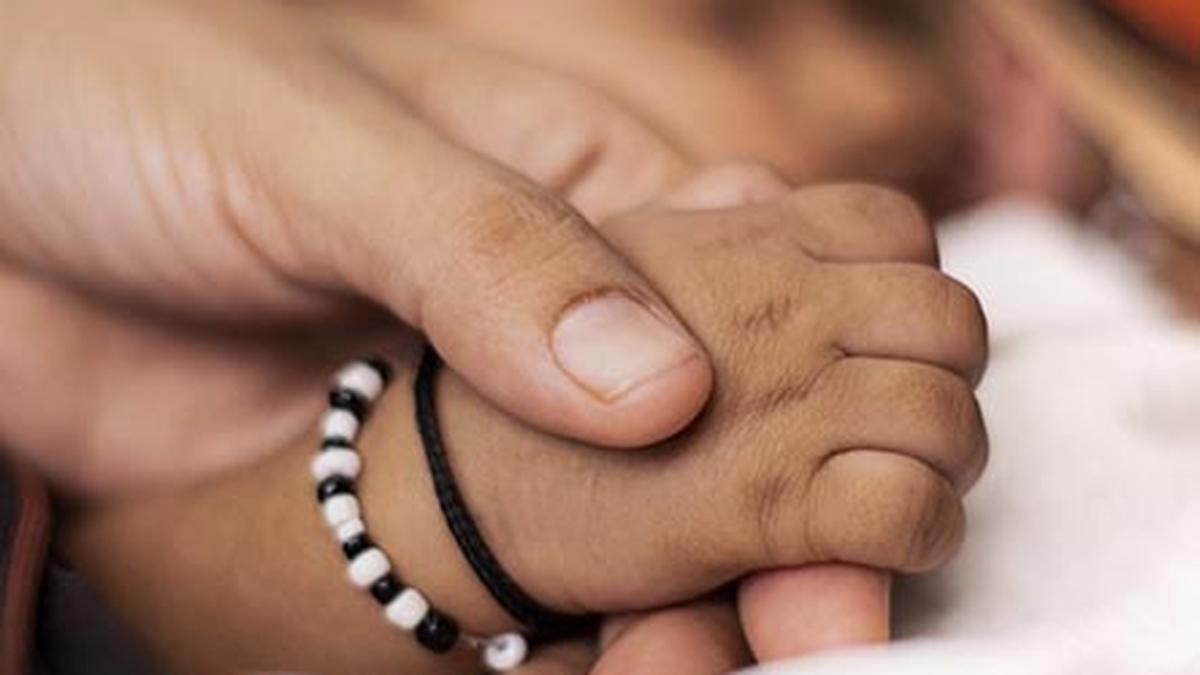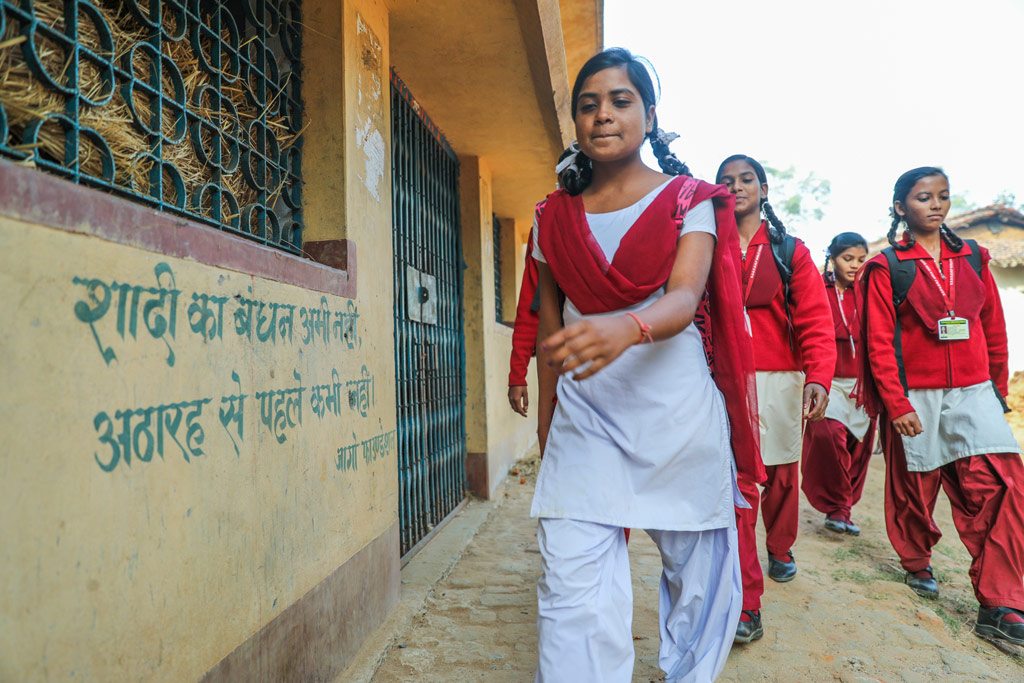A shocking incident has come to light in Karnataka’s Yadgir district, where a Class 9 student gave birth to a baby boy at a government-run residential school. The event has sent shockwaves across the state, raising urgent concerns about child safety, sexual abuse, and the effectiveness of protective mechanisms in educational institutions. The girl, aged just 14, reportedly delivered the baby within the school premises before being shifted to a hospital. Authorities have since initiated an inquiry to determine how such a grave violation of safety protocols could occur under the supervision of school authorities.
The case has prompted widespread outrage from parents, child rights activists, and the general public, many of whom have condemned the failure of the system to protect a vulnerable child. The incident underscores not only the risks faced by children in hostels but also highlights the alarming gaps in monitoring and support structures. Questions are being raised over how the pregnancy went unnoticed by teachers and staff for months, despite the student being under regular care. The Karnataka police have registered a case under the Protection of Children from Sexual Offences (POCSO) Act, and investigations are underway to identify the perpetrator responsible for the abuse.
The event has sparked political reactions as well, with opposition leaders criticizing the state government for failing to ensure the safety of children in residential schools. Demands for accountability from the education department, hostel wardens, and district officials are growing louder. This tragic incident has once again brought into focus the vulnerability of girl children in institutional settings and the urgent need for stricter oversight. The state government has assured swift action, but public anger continues to mount.
Child Safety in Residential Schools Under Scrutiny
The Yadgir case has highlighted the pressing need to review safety measures in government-run hostels and residential schools across Karnataka. Child rights organizations have long warned about the lack of adequate supervision, trained staff, and effective complaint mechanisms in such institutions. Experts stress that many children, especially girls from marginalized communities, are at higher risk of exploitation when placed in hostels far from home. The shocking case has exposed the loopholes in the system, where even pregnancies among minors could remain undetected for months without intervention from staff or medical officers.
Parents and guardians are demanding structural reforms to ensure their children’s well-being when enrolled in residential schools. Many believe that stronger monitoring committees, mandatory medical check-ups, and regular counseling sessions are essential to prevent such tragedies. Activists argue that there should be more emphasis on sensitizing staff and empowering students to report any form of abuse without fear of stigma. As the investigation progresses, it has become clear that the Yadgir case is not just an isolated incident but a symptom of deeper systemic flaws within Karnataka’s educational safety framework.

The incident in Yadgir has exposed serious gaps in institutional responsibility, especially in residential schools run by the government. Many child rights activists have noted that schools and hostels are supposed to function not just as places of education but also as safe environments for vulnerable children. The fact that a pregnancy remained unnoticed until the delivery itself raises alarming questions about medical supervision, staff vigilance, and the accountability of authorities in charge. Parents are now increasingly reluctant to send their children to such hostels, fearing that their safety cannot be guaranteed in state-run facilities.
Medical professionals have also weighed in, expressing shock that no health checks identified the student’s condition earlier. Regular medical examinations are mandated in such schools to monitor students’ well-being. However, experts argue that these checks are often superficial and fail to detect critical health issues. In this case, the absence of proper health screening has worsened the gravity of the situation. Doctors stress that minor pregnancies carry significant health risks, both for the mother and the baby, and the lack of early medical intervention could have had life-threatening consequences for both.
The police investigation under the POCSO Act is expected to reveal not only the identity of the perpetrator but also how such an incident could occur unnoticed in a monitored environment. Officials have stated that forensic evidence and testimony from the survivor will be critical to the case. Activists are urging law enforcement agencies to ensure that justice is swift and uncompromising. Many argue that delays in earlier cases of child abuse have often emboldened offenders, making strict timelines essential in cases involving minors.
The social implications of this tragedy are also far-reaching, with discussions around the stigma attached to child pregnancies in rural India. Survivors often face double victimization—first through the abuse itself and later through the judgment of society. Advocates for child rights emphasize the need to ensure that the girl is protected from further trauma, including discrimination from peers and community members. Support systems such as rehabilitation programs, educational continuity, and emotional counseling must be prioritized to prevent lifelong damage to the child’s future.
Educational experts are pushing for a systemic overhaul in the way Karnataka runs its residential schools. They suggest independent monitoring mechanisms that are free from bureaucratic interference to ensure accountability. Transparency in reporting and regular audits of schools and hostels could strengthen trust among parents. Without systemic changes, experts warn that such institutions risk losing credibility, leading to a decline in enrollment and worsening educational access for marginalized children, especially those from economically weaker sections.
Government Response and Demand for Accountability
The Karnataka government has come under intense pressure to deliver swift justice and restore public trust. The education department has suspended certain school staff pending investigation, citing negligence in failing to safeguard the student. Senior officials have promised a thorough review of safety protocols in all government-run residential schools. Meanwhile, political leaders across party lines have demanded strict action against both the perpetrators and negligent officials who allowed such a lapse to occur.

Experts emphasize that beyond punitive action, the state must invest in stronger child protection systems. This includes increasing the number of trained wardens, providing gender-sensitive training to teachers, and establishing confidential reporting mechanisms. Psychologists have also pointed out the need for counseling and rehabilitation for the survivor, who now faces both physical and emotional challenges at such a young age. Unless structural reforms are implemented, activists warn that such tragedies could recur, undermining public confidence in state-run education institutions.
The state government has promised strong action, but skepticism remains high among civil society groups. Many have seen similar promises made in the past after high-profile cases of abuse in schools, with little long-term impact. Critics argue that unless the government makes child protection a budgetary priority, reforms will remain confined to statements and circulars. Adequate funding is necessary to improve staff training, hire more wardens, and ensure the infrastructure of schools meets safety and privacy requirements for girl students.
Religious and community leaders have also spoken out, expressing sadness and shock over the incident. Some have used the occasion to call for greater moral vigilance, while others emphasize the importance of systemic changes over moralistic preaching. Community engagement is considered critical in identifying risks faced by children and creating environments where they can report abuse safely. Leaders are encouraging families to remain actively involved in their children’s education rather than leaving all responsibility to institutions.
In rural areas like Yadgir, where many families send their daughters to hostels due to lack of local schools, the incident has triggered widespread fear. Parents are now reconsidering whether the risks outweigh the benefits of residential schooling. If trust is not restored, experts warn that girls’ education could suffer setbacks, as families may prefer to keep them at home. This could potentially reverse years of progress made in increasing female enrollment in government schools and hostels.
Child psychologists have noted that beyond legal and structural measures, there needs to be greater sensitivity in how the survivor is treated by authorities and society. The girl, barely in her teens, now faces the challenge of recovering from trauma while also navigating motherhood, which is an enormous psychological and physical burden. Experts caution against sensationalizing the case, urging media and officials to respect the privacy and dignity of the survivor, as public exposure could further harm her well-being.

Ultimately, the Yadgir incident is being viewed as a wake-up call for Karnataka’s education and child welfare systems. It underscores the urgent need for a multi-layered approach involving law enforcement, education officials, health professionals, and civil society organizations. Unless all stakeholders work together to close the loopholes exposed by this tragedy, the safety of children in government-run institutions will remain at risk. The incident is not just about one child’s suffering but a reflection of systemic negligence that demands immediate correction.
Follow: Karnataka Government
Also read: Home | Channel 6 Network – Latest News, Breaking Updates: Politics, Business, Tech & More

